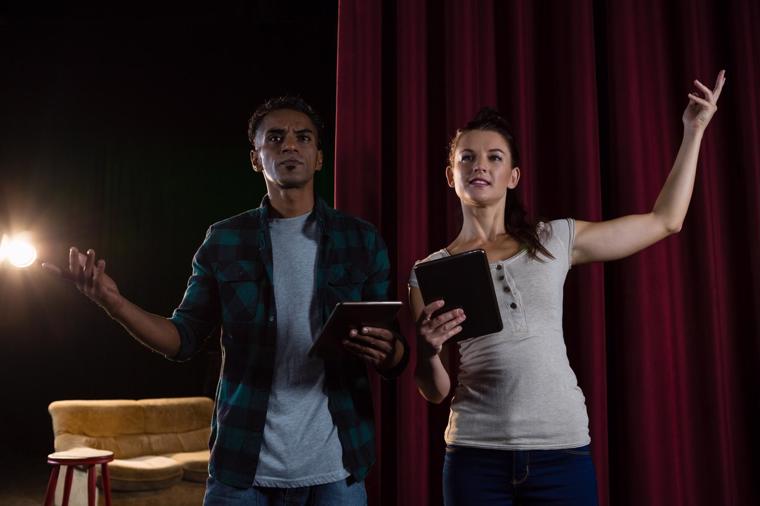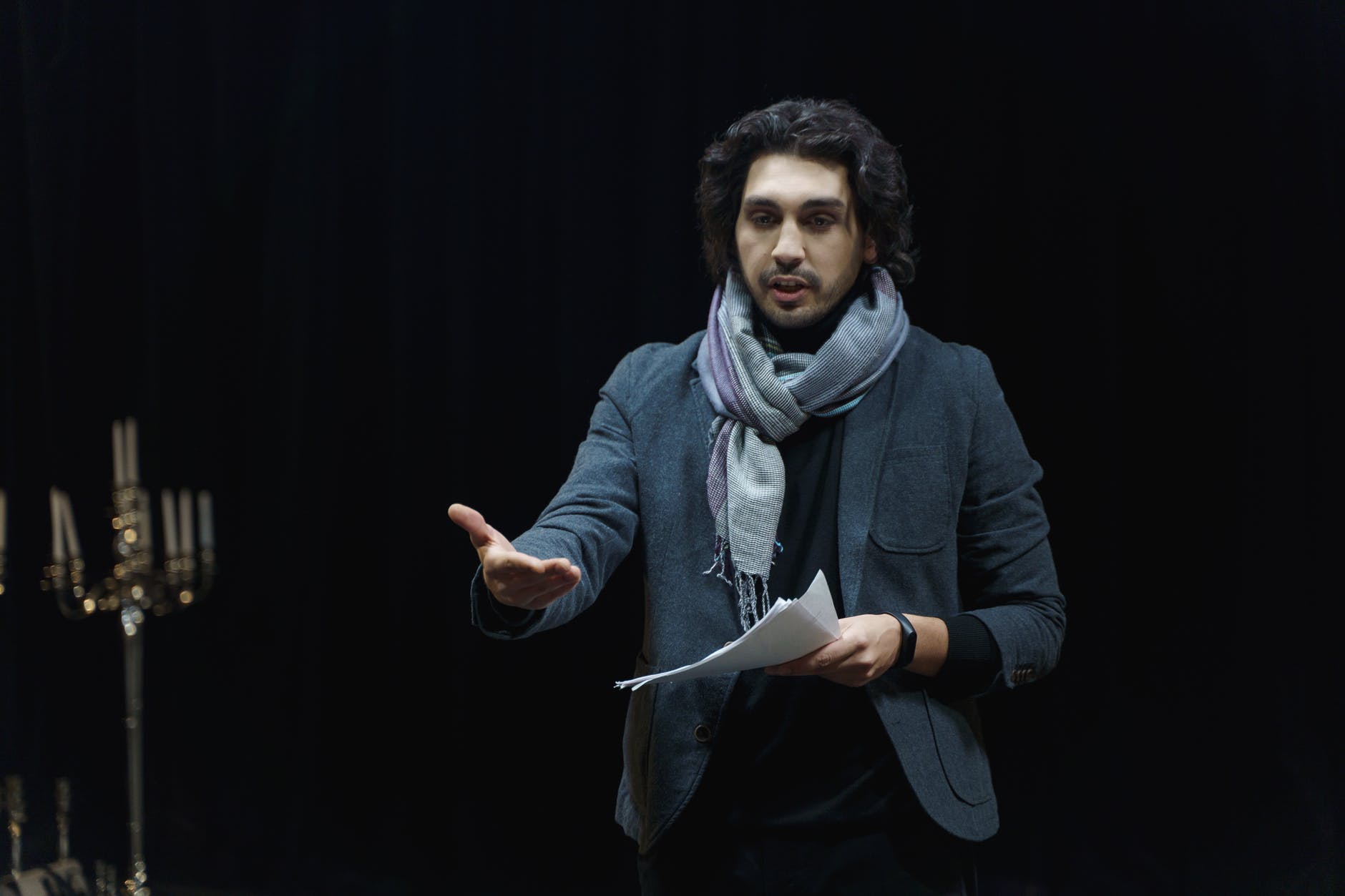Question:
Do You Have to Memorize a Monologue for an Audition?
(By Ray Reese)
 (Photo: Andrea Piacquadio | Pexels)
(Photo: Andrea Piacquadio | Pexels)
RELATED:
Memorize your lines in 5 easy steps!
How long does it take for an actor to memorize a scene?
Do you have to memorize a monologue for an audition?
Question:
Do You Have to Memorize a Monologue for an Audition?
Answer:
In most cases, yes, it’s highly recommended that you memorize your monologue. However, there are some nuances to consider:
Why Memorizing Your Monologue Matters

Memorizing your monologue demonstrates your level of professionalism and commitment to the audition process. It shows casting directors that you’ve prepared thoroughly and are serious about the role. Here are a few reasons why memorization is important:
Frees You Up to Focus on Performance: When your lines are fully memorized, you can direct your attention to delivering a powerful, emotionally connected performance. Instead of worrying about what comes next, you can focus on the character’s motivations, body language, and emotional depth.
Allows for Better Eye Contact: Memorizing your monologue helps you avoid constantly glancing at the script. Making eye contact with the casting director or focusing your gaze as your character would enhances the believability of your performance.
Improves Confidence: Knowing your lines inside out builds confidence. You’ll feel more relaxed and focused during the audition, which can lead to a more compelling and natural performance.
Shows Respect for the Process: Casting directors have limited time and are looking for actors who are ready to work. Being off-book (without needing the script) for your monologue shows respect for their time and the process.
When Memorization Is Essential
 (Photo: Andrea Piacquadio | Pexels)
(Photo: Andrea Piacquadio | Pexels)
In many cases, particularly for professional auditions, memorizing your monologue is not just encouraged—it’s expected. Here are some situations where being fully memorized is crucial:
Auditions for Stage Productions: In theater, the expectation is often that actors will come fully prepared with a memorized monologue. Since stage acting requires the ability to project and engage with the audience, having your lines memorized ensures you can focus on your delivery and stage presence.
High-Level Film/TV Auditions: For film or TV auditions, especially when competing for larger or more prominent roles, memorization shows you’re taking the audition seriously. Casting directors want to see your ability to deliver lines naturally and respond to direction without needing the crutch of a script.
Pre-Recorded Auditions (Self-Tapes): In self-tape auditions, you are usually expected to be off-book. Since you have the luxury of recording in your own space, casting directors assume that you will take the time to memorize the material. A fully memorized self-tape looks polished and professional.
When You Might Not Need to Memorize the Monologue

While memorization is generally the best practice, there are instances when it may not be required or even necessary. Some audition scenarios are more forgiving when it comes to being off-book:
Cold Readings: Some auditions involve cold readings, where the actor is given the script shortly before the audition. In these cases, memorization isn’t expected, but you should aim to be as familiar with the material as possible, making strong acting choices while holding the script. Although it’s not required, the more comfortable you are with the lines, the better your performance will be.
Initial Auditions or Cattle Calls: In large, open-call auditions where many actors are auditioning quickly, memorization may not be strictly necessary. The focus may be more on showing a spark of potential rather than delivering a fully polished monologue. Still, being memorized can give you an edge.
Last-Minute Audition Changes: Sometimes you may be given new material at the last minute, making it impossible to memorize everything. In these cases, it’s acceptable to hold the script in your hand, but you should still aim to be as familiar with it as possible.
What If You Struggle to Memorize?
If you’re having difficulty memorizing your monologue, there are a few strategies that can help you commit it to memory more effectively:
Understand the Text: Memorizing lines becomes easier when you truly understand the character’s motivations, objectives, and the emotions behind the dialogue. Once you understand why your character is saying each line, memorization becomes more intuitive.
Break It Into Chunks: Instead of trying to memorize the entire monologue at once, break it down into smaller sections. Focus on one part at a time, and then piece the sections together.
Use Repetition: Repetition is key when it comes to memorizing lines. Read your monologue multiple times, rehearse it aloud, and practice with a partner if possible. The more you repeat it, the easier it will be to remember.
Visualize the Story: Picture the monologue as a sequence of events or a story unfolding. Visualizing the action can help you recall the lines because you’re associating them with specific mental images.
Record and Playback: Record yourself saying the lines and listen to the recording while you’re commuting, cooking, or relaxing. Hearing the words repeatedly will help you commit them to memory.
What to Do If You Haven’t Memorized the Monologue
If you find yourself at an audition and haven’t fully memorized your monologue, don’t panic. Here are a few things you can do to handle the situation:
Hold the Script as a Backup: If you haven’t fully memorized the material, it’s better to hold the script than to struggle through forgotten lines. You can glance at it when necessary, but try to stay connected to your performance.
Apologize Briefly: If you’re not memorized, it’s okay to briefly acknowledge that you’re not off-book. A quick apology is enough—don’t dwell on it. Then, focus on giving your best performance with the script.
Stay Confident: Even if you haven’t memorized the monologue, keep your confidence up. What’s most important is how you perform, engage, and interpret the character. Being fully present, even with a script in hand, can still make a lasting impression.



